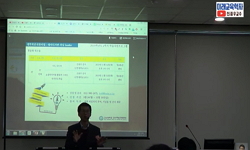중국 우한을 필두로 시작된 신종코로나 바이러스는 코로나19(COVID-19)로 명명 되며 WHO는 국제적 공중보건 비상사태와 세계적 대유행을 선포하였다. 이에 각 국가들은 코로나19 방역 대책을 마...
http://chineseinput.net/에서 pinyin(병음)방식으로 중국어를 변환할 수 있습니다.
변환된 중국어를 복사하여 사용하시면 됩니다.
- 中文 을 입력하시려면 zhongwen을 입력하시고 space를누르시면됩니다.
- 北京 을 입력하시려면 beijing을 입력하시고 space를 누르시면 됩니다.
https://www.riss.kr/link?id=T15770664
- 저자
-
발행사항
서울 : 성균관대학교 일반대학원, 2021
-
학위논문사항
학위논문(석사) -- 성균관대학교 일반대학원 , 인공지능학과 , 2021. 2
-
발행연도
2021
-
작성언어
한국어
- 주제어
-
발행국(도시)
서울
-
기타서명
A study on the trend of COVID-19 perception through dynamic topic modeling and semantic network analysis using tweeter text data
-
형태사항
vi, 61 p. : 삽화, 표 ; 30 cm
-
일반주기명
지도교수: 김장현
참고문헌 : p. 53-59 -
UCI식별코드
I804:11040-000000161695
- DOI식별코드
- 소장기관
-
0
상세조회 -
0
다운로드
부가정보
국문 초록 (Abstract)
첫째로 코로나19 관련 트위터 텍스트의 토픽을 토픽모델링 방법론을 활용하여 연구를 진행하였다. 2020년 04월 01일을 시작으로 08월 31일까지 트위터 상에 생성 된 코로나19 관련 텍스트를 대상으로 동적토픽모델링(Dynamic topic modeling)을 활 용하여 코로나19의 이슈토픽을 시계열적으로 파악하였다. 토픽의 진화과정을 위해 데이터를 기간별 분리를 통해 전체 데이터를 시간의 흐름에 따라 연속적으로 파악 함을 통해 토픽별 세부 이슈의 생성, 소멸, 병합 등의 과정을 보여주었다.
둘째로 사회의 시스템구조를 파악하기위해 네트워크관점에서 분석하는 사회연결 망 분석을 커뮤니케이션 메시지에 적용시킨 의미연결망 분석을 진행하였다. 주요 키워드들의 위치와 역할을 파악함으로써 코로나19의 개별토픽과 더불어 코로나19 의제에 대해 거시적인 틀에서의 분석을 보여주었다. 이와 같이 전통적인 여론조사 분석을 동적토픽모델링과 의미연결망을 통한 정량적 분석으로 전환하는 방법론적 기여를 보여주었다.
본 연구는 코로나19로 인한 국가정책으로 관련 연구가 지속적으로 증가되며, 중요성이 강조되는 시점에 동적토픽모델링과 의미연결망을 활용하여 이슈를 파악하여 이를 종합적으로 분석하였다. 이를 통해 코로나19에 대한 사회적 인식과 변화를 확 인하여 향후 국가 정책과 코로나19 이해관계자들에게 요구되는 방향과 효율적 목표 를 달성하기위한 사항들을 제시함으로써 이후 정책수립을 진행 할 때 유용한 자료 로 활용될 수 있을 것이다.
중국 우한을 필두로 시작된 신종코로나 바이러스는 코로나19(COVID-19)로 명명 되며 WHO는 국제적 공중보건 비상사태와 세계적 대유행을 선포하였다. 이에 각 국가들은 코로나19 방역 대책을 마련하였다. 그 사례로 학교, 식당, 스포츠경기장 과 같은 일부 사회공간들이 일시적으로 폐쇄되었으며, 일시적 입국제한 조치로 인해 국가 간 무역활동에도 영향을 미쳤다. 이러한 현상들로 인해 대중들의 경제활동이 위축되었으며, 산업, 정책, 그리고 생활환경의 다양한 변화가 촉진되며 코로나19관 련 이슈가 생성되고 대량의 정보들이 유행처럼 확산되어 소셜 미디어상에 축적되었 다. 코로나19의 토착화와 세계적 관심 및 심각성이 높아짐에 따라 사회적 흐름을 인지하여 사회적 인식을 파악하고 핵심 토픽을 분석하는 것은 유의미하다. 또한 순 환과 확산이 강한 소셜 미디어에 형성된 이슈를 효율적으로 파악하는 연구는 사회 적 인식을 조망하기위해 중요하다. 이에 소셜 미디어상에 형성된 코로나19의 이슈 에 대한 분석이 요구된다. 이러한 이슈 분석은 이슈의 발전양상 및 동향을 파악함으로써 향후 정책방향을 수립할시 이슈분석은 중요한 연구라 할 수 있다. 본 논문 은 위의 목적을 달성하고자 두 개의 독립적 방법론을 활용하여 연구를 진행하였다.
첫째로 코로나19 관련 트위터 텍스트의 토픽을 토픽모델링 방법론을 활용하여 연구를 진행하였다. 2020년 04월 01일을 시작으로 08월 31일까지 트위터 상에 생성 된 코로나19 관련 텍스트를 대상으로 동적토픽모델링(Dynamic topic modeling)을 활 용하여 코로나19의 이슈토픽을 시계열적으로 파악하였다. 토픽의 진화과정을 위해 데이터를 기간별 분리를 통해 전체 데이터를 시간의 흐름에 따라 연속적으로 파악 함을 통해 토픽별 세부 이슈의 생성, 소멸, 병합 등의 과정을 보여주었다.
둘째로 사회의 시스템구조를 파악하기위해 네트워크관점에서 분석하는 사회연결 망 분석을 커뮤니케이션 메시지에 적용시킨 의미연결망 분석을 진행하였다. 주요 키워드들의 위치와 역할을 파악함으로써 코로나19의 개별토픽과 더불어 코로나19 의제에 대해 거시적인 틀에서의 분석을 보여주었다. 이와 같이 전통적인 여론조사 분석을 동적토픽모델링과 의미연결망을 통한 정량적 분석으로 전환하는 방법론적 기여를 보여주었다.
본 연구는 코로나19로 인한 국가정책으로 관련 연구가 지속적으로 증가되며, 중요성이 강조되는 시점에 동적토픽모델링과 의미연결망을 활용하여 이슈를 파악하여 이를 종합적으로 분석하였다. 이를 통해 코로나19에 대한 사회적 인식과 변화를 확 인하여 향후 국가 정책과 코로나19 이해관계자들에게 요구되는 방향과 효율적 목표 를 달성하기위한 사항들을 제시함으로써 이후 정책수립을 진행 할 때 유용한 자료 로 활용될 수 있을 것이다.
다국어 초록 (Multilingual Abstract)
First, the study was conducted on the topic of the COVID-19 tweets using the topic modeling methodology. From April 1st, 2020 to August 31st, we used dynamic topic modeling for the texts related to COVID-19 generated on Twitter to identify the issue topics of COVID-19 in time series. For the evolution of topics, the process of creation, destruction, and merging of detailed issues for each topic was shown by continuously grasping the entire data over time through separating data by period.
Second, in order to understand the system structure of society, a semantic network analysis was conducted that applied the social network analysis analyzed from a network perspective to communication messages. By identifying the location and role of the key-words, it showed an analysis in a macro framework of the COVID-19 agenda along with individual topics of COVID-19. In this way, it showed the methodological contribution of converting the traditional poll analysis into a quantitative analysis through dynamic topic modeling and semantic networks.
In this study, related studies are continuously increasing due to the national policy caused by Corona 19, and when the importance is emphasized, issues are identified using dynamic topic modeling and semantic networks and comprehensively analyzed. Through this, it can be usefully utilized in future COVID-19 policy formulation by confirming social perceptions and changes in COVID-19 and presenting the directions and effective goals in future national policies.
The respiratory disease from China is given the name Coronavirus Disease 2019(COVID-19), and World Health Organization(WHO) has declared PHEIC(Public Health Emergency of International Concern) and Pandemic. Majority of countries in the world has prepa...
The respiratory disease from China is given the name Coronavirus Disease 2019(COVID-19), and World Health Organization(WHO) has declared PHEIC(Public Health Emergency of International Concern) and Pandemic. Majority of countries in the world has prepared quarantine measures, such as temporary lockdown social spaces. COVID-19 is taking a toll on the worldwide health care as such as social, economy, and mental health of humankind. The phenomenon created COVID-19 related texts, and large amount of text data are being accumulated on social media. Papers to recognize the social flow to grasp social perceptions, and analyze key topics are meaningful as the naturalized of COVID-19 and growing global interests. In addition, it is necessary to identify COVID-19 issues formed on social media with strong circulation and proliferation to recognize social perceptions. In order to achieve the objectives, this study has conducted research using two methodologies.
First, the study was conducted on the topic of the COVID-19 tweets using the topic modeling methodology. From April 1st, 2020 to August 31st, we used dynamic topic modeling for the texts related to COVID-19 generated on Twitter to identify the issue topics of COVID-19 in time series. For the evolution of topics, the process of creation, destruction, and merging of detailed issues for each topic was shown by continuously grasping the entire data over time through separating data by period.
Second, in order to understand the system structure of society, a semantic network analysis was conducted that applied the social network analysis analyzed from a network perspective to communication messages. By identifying the location and role of the key-words, it showed an analysis in a macro framework of the COVID-19 agenda along with individual topics of COVID-19. In this way, it showed the methodological contribution of converting the traditional poll analysis into a quantitative analysis through dynamic topic modeling and semantic networks.
In this study, related studies are continuously increasing due to the national policy caused by Corona 19, and when the importance is emphasized, issues are identified using dynamic topic modeling and semantic networks and comprehensively analyzed. Through this, it can be usefully utilized in future COVID-19 policy formulation by confirming social perceptions and changes in COVID-19 and presenting the directions and effective goals in future national policies.
목차 (Table of Contents)
- 제1장 서론 1
- 제 1절 연구의 배경 및 목적 1
- 가. 연구의 배경 1
- 나. 연구의 필요성 2
- 다. 연구의 목적 4
- 제1장 서론 1
- 제 1절 연구의 배경 및 목적 1
- 가. 연구의 배경 1
- 나. 연구의 필요성 2
- 다. 연구의 목적 4
- 제2장 이론적 방법론적 배경 6
- 제 1절 연구 방법론 6
- 가. 토픽모델 개요 6
- 나. LDA(잠재 디리클레 할당) 7
- 다. DTM(동적 토픽모델링) 9
- 라. TF-IDF 11
- 마. 의미 연결망 12
- 제 2절 선행 연구 14
- 가. 코로나 19 이슈 분석 관련 연구 14
- 나. 토픽 모델링을 활용한 연구 15
- 다. 의미연결망을 활용한 동향 및 이슈탐색 연구 16
- 라. 기존연구와의 차별성 16
- 제3장 연구 방법 18
- 제 1절 연구 방법 18
- 가. 연구 대상 19
- 나. 연구 방법 20
- 제4장 연구 결과 23
- 제 1절 동적 토픽모델을 활용한 코로나19 이슈 분석 23
- 가. 마스크 [Topic-1]에 대한 분석 결과 24
- 나. 사망자 현황 [Topic-2]에 대한 분석 결과 26
- 다. 선거 [Topic-3]에 대한 분석 결과 27
- 라. 도널드 트럼프 [Topic-4]에 대한 분석 결과 29
- 마. 봉쇄정책 [Topic-5]에 대한 분석 결과 31
- 바. 여가생활 [Topic-6]에 대한 분석 결과 32
- 사. 양성반응자 [Topic-7]에 대한 분석 결과 34
- 아. 교육기관 [Topic-8]에 대한 분석 결과 35
- 자. 스포츠경기 [Topic-9]에 대한 분석 결과 37
- 차. 재택근무 [Topic-10]에 대한 분석 결과 39
- 제 2절 의미연결망 활용한 코로나19 이슈 분석 41
- 가. 제 1 기간 의미연결망 분석 결과 (2020.04.01. ~ 2020.04.30.) 41
- 나. 제 2 기간 의미연결망 분석 결과 (2020.05.01. ~ 2020.05.31.) 43
- 다. 제 3 기간 의미연결망 분석 결과 (2020.06.01. ~ 2020.06.30.) 45
- 라. 제 4 기간 의미연결망 분석 결과 (2020.07.01. ~ 2020.07.31.) 46
- 마. 제 5 기간 의미연결망 분석 결과 (2020.08.01. ~ 2020.08.31.) 48
- 제5장 결론 및 시사점 50
- 제 1절 연구결과 분석 및 시사점 50
- 제 2절 연구의 한계점 및 추후 연구 방향 52
- 참고문헌 53
- Abstract 60












